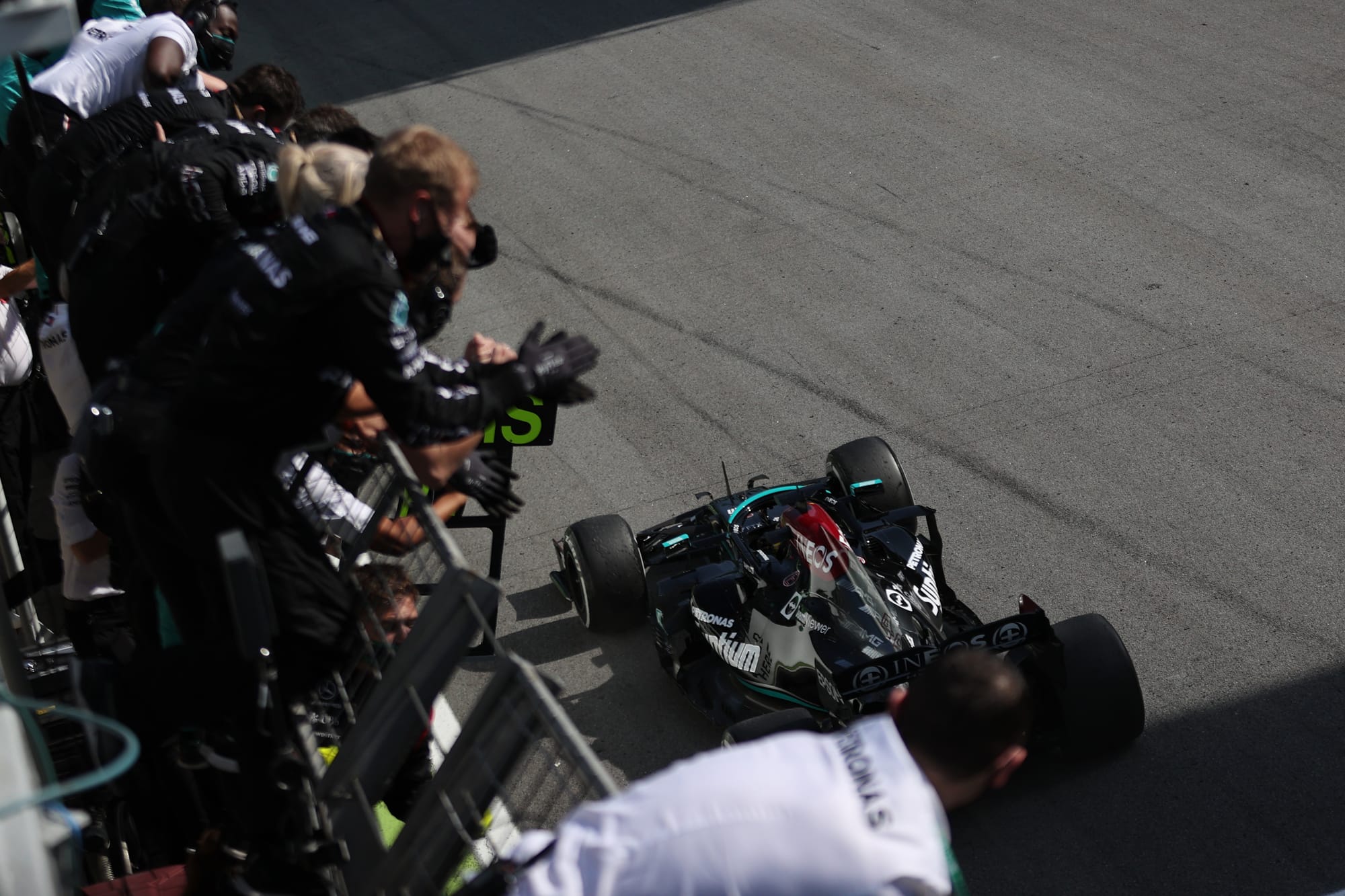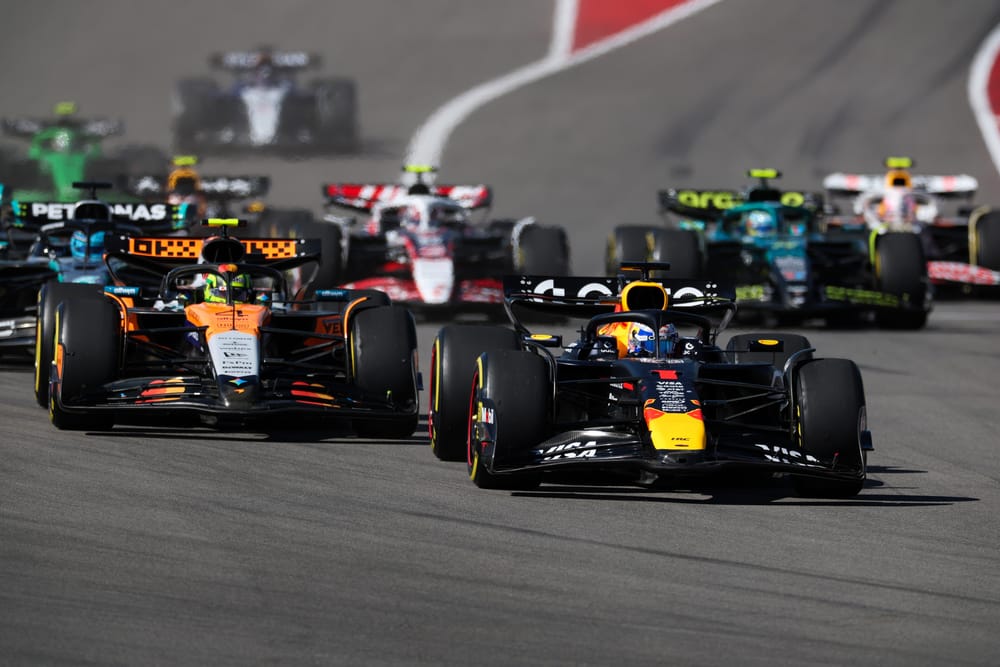The possibility, however unlikely, that Max Verstappen could be just a few points from the Formula 1 championship lead after this weekend's Brazilian Grand Prix highlights how vulnerable the fight at the front is to a dramatic swing in the final four events.
Just 36 points separate Verstappen from new championship leader Lando Norris, with 33 points up for grabs in Brazil this weekend across the sprint and Sunday's grand prix.
Remote though the chance may be that Verstappen scores a maximum and Norris racks up zero, or next to nothing, it was only two race weekends ago on a sprint weekend in the United States that Verstappen hacked 23 points out of Oscar Piastri by dint of the two McLarens crashing out together on Saturday then Piastri only finishing fifth on Sunday.
The many variables at play in this fight have never seemed so powerful. And there is potentially one very interesting one still to be factored in: engines.
These have gone from being the dominant factor in F1's turbo-hybrid era less than a decade ago to almost becoming a footnote now we are several years into a homologation freeze and all bar Renault seem to be much of a muchness in terms of performance.
However, there is still a part to play. Engine usage is not completely free and despite this championship being fought out by the two best engines of the era in Mercedes (in the case of the McLarens) and Honda (powering Verstappen's Red Bull), completing the remainder of the season without another change is not a given.
All three drivers have used the maximum number of free components in their pools when it comes to the main items: the V6 engine, MGU-H, turbocharger, MGU-K, control electronics and battery. Need one more of any and it will mean a 10-place grid penalty. Need enough components to accrue more than 15 places worth of penalties and it means starting from the back of the grid. And that is for the main grand prix not just a sprint race.
Verstappen had a grid penalty in Brazil last year, which was emphatically wiped out of relevance by his stunning victory in the wet. He also enjoyed a commanding championship lead so even though Red Bull's season began to creak, the grid penalty was not a dramatic variable.
Now, though, any such setback could be a major curveball.
Norris, remember, suffered a failure just a few races ago, retiring from second place in the Dutch Grand Prix. That was caused by an engine oil line problem triggering an oil leak, which the failsafe system detected and shut the engine down to prevent a full failure. The engine was subsequently investigated thoroughly by Mercedes and McLaren is understood to be relaxed about its situation and not planning any further changes as it stands.
The two McLaren drivers are separated by just a point, and fighting each other against a backdrop of massive scrutiny over McLaren's commitment to fairness and - in some quarters - accusations of bias against Piastri.
Any technical setback would not only have drastic implications in the title fight but also potentially fuel speculation about driver treatment even further. But any grid penalty to, theoretically, prevent a future problem or because an engine simply isn't in the pool anymore, would be a big swing in itself given how decisive qualifying has been this year: 14 times in 20 events, the McLaren driver that started ahead, finished ahead.
But it's not just a McLaren matter. If Verstappen needs an engine change, it is a further obstacle in his still long-shot bid to overcome a significant points deficit.
As he said himself recently, he and Red Bull need "perfect" weeks until the end of the season - and a race in which he starts five places further back than he should is not the most straightforward way to achieve that.
What could help Verstappen is that Honda's engine grew to be very robust by the time he won his first world title. So there has not been any concern since then about its mileage capacity or the impact of the engine over its life cycle - whereas Mercedes, for example, admitted in late 2021 that its engine lost more power the longer it ran for, and became a reliability concern.

That prompted Lewis Hamilton's grid penalty that year - also in Brazil - and his own stirring fightback, aided by that fresh engine with full power. Mercedes boss Toto Wolff said at the time: "What we know for sure is that we're losing power the more we run it and that's why we wouldn't want to continue to run this current power unit and end up with nothing - or not much more - left if we are still in the championship."
The implication at the time was that Mercedes had suffered a reliability setback for chasing performance first in the wake of Ferrari's controversial progress in 2019 and then Honda going all-in with its last 'official' F1 engine in 2021 before withdrawing, bringing forward major developments that had been planned for the following season.
However, that was four years ago, and it was obvious at the time that Mercedes had identified this as a priority for the engine homologation in 2022 so it could "actually go through the seasons without accruing engine penalties".
Whether that has been achieved or not has ended up, in championship terms, an irrelevance given its own team has not been in a championship fight - although it clearly did a very good job as a supplier to McLaren, the 2024 and 2025 constructors' champion.
It might become a topic again with its customer team again now in the drivers' contest. It is just one of any number of variables - big or small - that help determine the final outcome of this championship.



